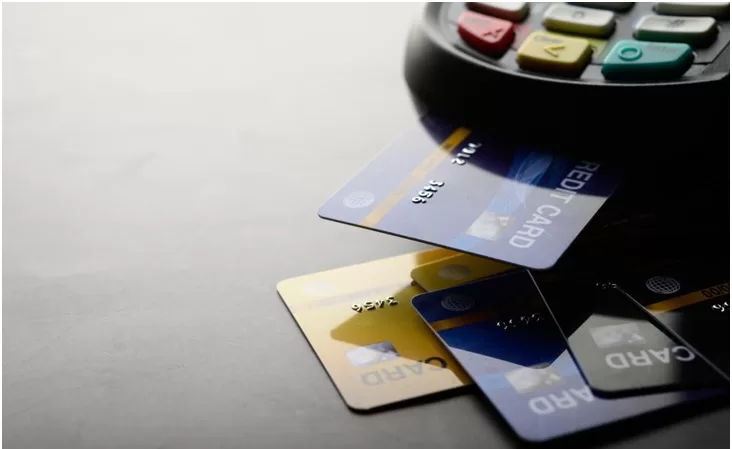Finance
How to Use Credit Wisely to Improve Your Finances

At a time when you’re more likely to swipe your credit card than pull out cash, finding ways to use credit wisely has never been more important.
Your credit card is a convenient financial tool that lets you make online purchases, but it’s notoriously easy to overspend using this payment method. To top if off, any missteps you make with your credit card can hurt your credit score, limiting the types of personal loans you can qualify for in the future.
So why, exactly, is credit so popular, and how can you use it in a safe way that insulates your finances? Keep scrolling to find out.
Why Cash is on the Chopping Block
Cash used to be king, but credit cards have seized the crown. The reason is, predictably, COVID-19, as the pandemic accelerated a shift from paper to digital payments.
Paper money has always been known for being dirty, reportedly carrying more germs than the average household toilet. But a study shows it may be a vector for the coronavirus for as long as 28 days in the right temperatures.
At the same time, growing financial infrastructure also means it’s easier than ever to e-bank, tap your card, or even use your phone at an increasing number of retailers.
What’s the Danger in Using Credit All the Time?
The plastic in your wallet is a more convenient way to shop — which is exactly the problem. Research shows people tend to spend a lot more when they use credit cards instead of cash.
There’s a psychological reason behind this bad habit. Paper bills and coins are tangible things that disappear as you spend them. You’ll watch their numbers dwindle until your wallet is empty.
Cash points teaches you a concrete lesson: you spend money, you lose money.
Credit, on the other hand, doesn’t have such an obvious cause and effect. You’re often given a limit worth much more than you have on hand, and your purchases are invisible electronic transactions.
It’s easy to lose track of what you’ve spent when things are hidden like this. That is, until you receive your statement.
All that tapping or swiping can catch up with you if you overspend. It can even make a dent in your credit score when you carry over a balance each month, which could affect what kinds of installment loans or lines of credit you could qualify for in the future.
Money-Savvy Tips for Using Your Credit Card
Although a credit card can pose a risk to your finances, it can also be an indispensable financial tool that helps you pay bills, make online purchases, and build good credit if you’re careful. So, how can you use your credit cards wisely? Keep scrolling to find out.
Pay Bills on Time
Like any utility bill or installment loan, credit cards have important due dates. You’ll want to make sure you always pay back what you’ve used by this date. This habit will help you avoid late fees and protect your credit score from delinquencies.
Always Pay More Than the Minimum
Unlike installment loans, credit cards are like lines of credit in that they come with a minimum payment. The minimum the least amount of money you have to pay to keep your account in good standing.
When things are tight, it may be tempting to pay this amount each time. But by paying the minimum, you’ll be carrying over a balance that’s subject to interest charges and other fees. These charges roll over every time you fall back on the minimum payment.
How much these charges cost depend on your lender and whether you’re using a credit card or line of credit. If you took out either of these accounts when you have bad credit, these charges will be higher.
One day, you’ll have to pay them off, which means you’ll be spending more for your purchases when you do. In the meantime, you’ll be tying up your limits until you pay back what you owe.
That’s why the line of credit experts at MoneyKey recommend paying as much as you can, whenever you can, to keep this limit free. This puts you in a better position should you need to put an unexpected medical expense on credit, so you don’t have to take out an installment loan, line of credit, or additional credit card.
Treat It Like Cash
While pulling out a billfold might be old-fashioned, cash-based money management will never go out of style. When you treat your credit card or line of credit like it’s cash, you can’t use any more than what you have to spend, even if this number is less than your overall credit limit.
It’s easier to recognize when you’re overspending when you have a budget. This document tells you how much expendable money you have to spend after you cover the essentials.
Look at Your Statements
Start by looking at your statement every month when you pay your bills. You’ll be able to catch and undo any fraudulent charges that could be affecting your credit score unfairly.
Checking your statements is also another chance to review your spending for the month. This might be the wake-up call you need if you see you’re spending a lot of money on unnecessary things or maxing out your limits each month.
The Takeaway
With cash being less sanitary than ever, you’re probably using credit more than ever. Remember these tips when you do. They’ll help you use your credit card in a way that protects your finances from interest and late penalties.

























































